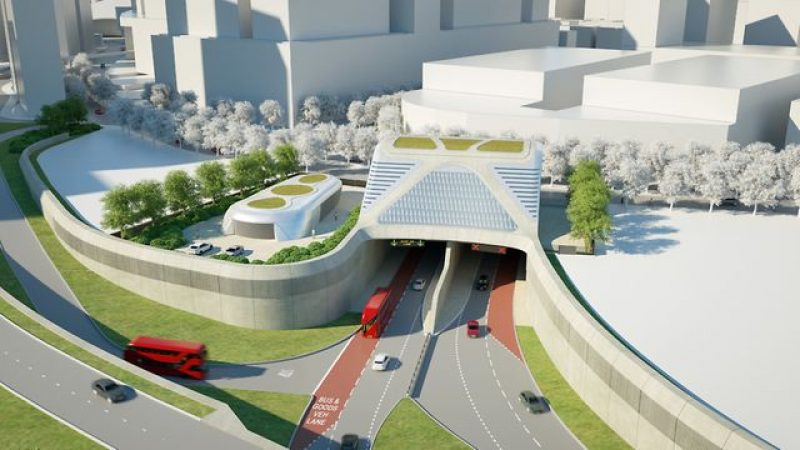
Here’s a question for Sadiq: do you want to win the next mayoral election, or at least ensure that your Labour successor does so if you choose to stand down? Well, my advice would be to drop the Silvertown Tunnel plan – as soon as possible.
That’s because the next election is likely to be fought on first-past-the-post rather than the supplementary vote system currently used, whereby second preferences are counted for all but the two leading candidates. All those Green voters who happily put Labour second on the ballot paper last time will no longer do so. Worse, many Green-leaning Labour supporters will simply decide not to turn out due to Sadiq’s support for a scheme that is so clearly out of kilter with the ideals professed by the Labour leadership in City Hall. The mayoral vote was a mere 55-45 this year, and Sadiq had the advantage not only of incumbency but also of a hopeless Tory candidate whose response to every issue was an ill-thought out kneejerk.
Dumping Silvertown is a good move not only for reasons of naked electoral advantage. It is noticeable that neither Sadiq nor any other prominent Labour campaigners for City Hall posts ever mention the bloody scheme. There’s a good reason for that. It’s a disaster on every level, starting with the £2bn (and rising) cost.
City Hall, when pushed into talking about the project, will argue that as it is a private finance initiative, and there is no cost that will fall on tax and rate payers. Not so. The money will be raised from tolls on both the new tunnel and the existing Blackwall tunnels. This is not money raised by the private sector but rather will come out mostly from Londoners’ pockets.
A far more sensible solution would be to toll Blackwall tunnels now and use the money for funding other more sustainable river crossing schemes. It is astonishing that this obvious solution to the current congestion has never been properly tested through modelling.
Moreover, Silvertown is an environmental disaster. First, building roads to relieve congestion is a policy that has been repeatedly discredited in reports stretching back to the 1980s, which showed that increasing road space simply encourages car use. Not surprising none of the local councils and MPs are cheerleading for the scheme. Quite the opposite. They realise such a massive new road project will simply increase local traffic and worsen local air pollution.
At COP26, Sadiq gained approbation for his work on the environment and was confirmed as chairman of the C40 group of cities (which actually number nearly 100) committed to reducing pollution and moving towards net zero emissions. That makes his support for the scheme embarrassing at a global level. What example does it set all those other cities?
The worst aspect of continuing to support the construction of Silvertown is that it undermines all the excellent policies adopted by Transport for London under Sadiq’s leadership. The recently extended Ultra-Low Emission Zone is a fantastic initiative, which has been implemented despite widespread opposition. It is the type of brave decision that is needed to respond to the climate emergency. Other positive policies are being pursued, such as the expansion of cycling lanes, the commitment to zero emission buses, the greening of the taxi fleet and much more. Yet, at the next mayoral election all this will be forgotten if Silvertown remains the bigger game in town.
Even if Silvertown did reduce emissions – which on most calculations it is very unlike to do so – then the £2bn cost would enable far bigger reductions if it were spent on genuinely sustainable projects. Sadiq must, at heart, know this, but continues to support Silvertown, albeit rarely mentioning it in public because the arguments for it are so weak.
Now that Crossrail is finished and due to open early next year, Silvertown will become Transport for London’s biggest project during this mayoralty. In other words, a major road project is at the head of the mayor’s agenda at a time when he is constantly reiterating his support for environmentally-friendly policies. It does not stack up and it may well cost Labour the London mayoralty in 2024.




More from LabourList
‘Labour won’t stop the far right by changing leaders — only by proving what the left can deliver’
‘Cutting Welsh university funding would be economic vandalism, not reform’
Sadiq Khan signals he will stand for a fourth term as London Mayor